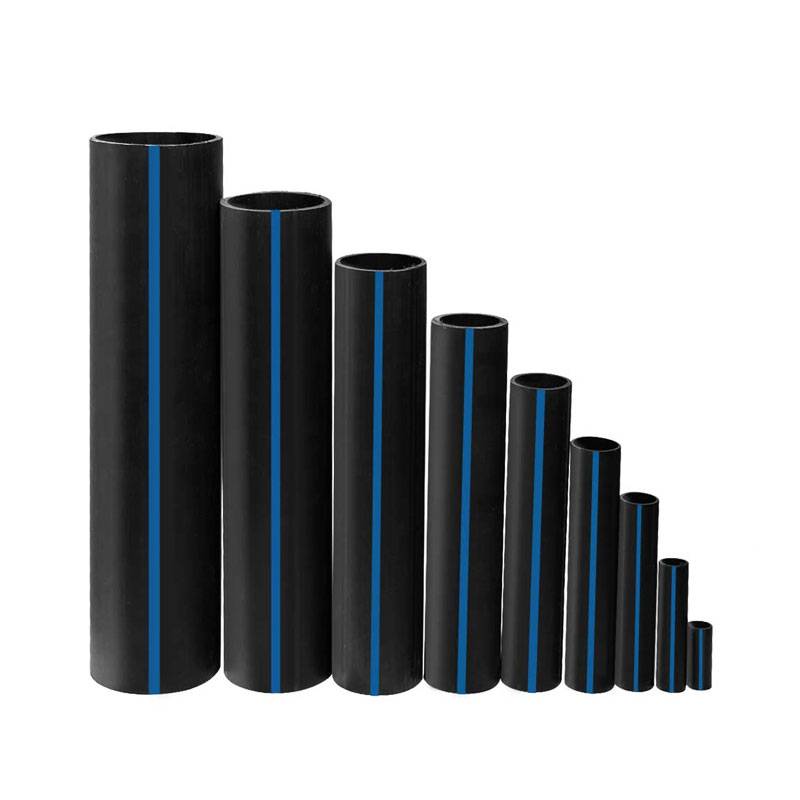American Plastics HDPE Pipe for Oilfield: Built for Harsh Conditions
Recognizing the Trick Conveniences of HDPE Pipe for Water and Wastewater Management
Using HDPE pipeline in water and wastewater monitoring offers countless benefits that warrant factor to consider. Its extraordinary toughness and long life expectancy make it a recommended choice for numerous tasks. In addition, the product's resistance to rust and chemical damage boosts its reliability in numerous atmospheres. The advantages expand beyond simply longevity and resistance. American Plastics HDPE Pipe Manufacturing. Discovering its cost-effectiveness and ecological influence discloses a lot more compelling reasons for its widespread adoption in modern infrastructure
Remarkable Sturdiness and Long Life

HDPE pipe stands out for its outstanding toughness and long life, making it a preferred option in water management systems. Constructed from high-density polyethylene, these pipes can hold up against substantial pressure and anxiety, ensuring dependable performance over time. Their durable nature permits them to sustain extreme ecological problems, consisting of temperature variations and soil activities, which can trigger various other materials to fail.
The lifespan of HDPE pipes frequently goes beyond half a century, providing an economical service for districts and markets alike. In addition, the material's lightweight residential or commercial properties streamline installation, reducing labor expenses and durations. This sturdiness decreases the requirement for frequent repair services or replacements, additionally enhancing its economic allure.
In water administration applications, the reliability of HDPE pipelines indicates fewer disruptions and improved service connection, making them essential to lasting facilities development. The mix of longevity and long life solidifies HDPE's role as a keystone in reliable water monitoring remedies.

Resistance to Deterioration and Chemical Damages
While numerous materials catch deterioration and chemical damage over time, HDPE pipelines display amazing resistance, making them ideal for numerous water administration applications. This resilience originates from the molecular framework of high-density polyethylene, which is inherently non-reactive and does not wear away like steels or deteriorate from direct exposure to rough chemicals. Consequently, HDPE is highly efficient in settings with hostile substances, such as wastewater systems that may include acids, bases, and natural solvents.
In addition, HDPE pipelines can endure environmental factors such as soil level of acidity and saline problems, even more boosting their suitability for varied applications (Texas hdpe pipe manufacturer). Their capability to keep architectural stability with time reduces the risk of leakages and failures, which is important in making certain the safety and reliability of water distribution and wastewater monitoring systems. Subsequently, the resistance to deterioration and chemical damages considerably contributes to the overall performance and long life of HDPE piping options
Cost-Effectiveness and Financial Benefits
When considering the financial ramifications of water management systems, the cost-effectiveness of HDPE pipes comes to be obvious. These pipes supply lower installation and upkeep expenses contrasted to typical products like steel or concrete. Their light-weight nature streamlines transport and installment, causing reduced labor costs. Additionally, HDPE pipelines exhibit a long life-span, typically exceeding 50 years, which equates to less replacements and long-term cost savings.
Moreover, the resistance of HDPE to corrosion and chemical damage decreases the need for pricey fixings and substitutes. The pipelines likewise sustain effective water flow, lowering energy expenses related to pumping systems. By minimizing leaks and water loss, HDPE pipelines contribute to substantial economic benefits for districts and industries alike. On the whole, the initial financial investment in HDPE piping see here now can yield considerable financial returns over the life expectancy of the water management system, making it a prudent choice for sustainable facilities advancement.
Ecological Sustainability and Lowered Impact

Convenience and Adaptability in Installment
As a result of their distinct properties, HDPE pipes supply remarkable adaptability and versatility in installment, making them appropriate for a large range of applications. Their lightweight nature permits much easier handling and transportation, reducing labor costs and installation time. HDPE pipelines can be curved and formed to fit different surfaces and job needs, which is especially useful in challenging atmospheres.
Additionally, their resistance to rust and chemical damage permits setup in diverse setups without the need for specialized safety finishings. The ability to fuse joints develops a continuous, leak-free system, boosting the overall honesty and dependability of the installment. HDPE's versatility also fits ground activity, lowering the danger of damages in locations prone to changing soil. Overall, these qualities make HDPE pipelines not just versatile but likewise a favored dig this selection for water and wastewater management systems.
Frequently Asked Concerns
Exactly How Does HDPE Pipeline Contrast to PVC in Water Monitoring Applications?
HDPE pipeline supplies exceptional versatility, resistance to rust, and resilience compared to PVC. Its lighter weight helps with much easier installment, while its lengthy lifespan decreases replacement expenses, making HDPE a recommended choice in water administration applications.
What Is the Life Expectancy of HDPE Piping Under Typical Conditions?
Under common conditions, HDPE pipes can have a lifespan ranging from 50 to 100 years. Their toughness and resistance to deterioration add to their long-lasting performance in different applications, making them a dependable selection for framework.
Are HDPE Pipeline Recyclable After Their Life Span?
Yes, HDPE pipelines are recyclable after their life span. Midland TX HDPE Pipe Fittings in Stock. They can be processed and repurposed right into brand-new items, substantially decreasing environmental impact and advertising sustainability within the market, making them a green option for piping services
What Is the Installment Process for HDPE Piping?
The setup procedure for HDPE pipes entails site prep work, trenching, pipe combination or mechanical signing up with, backfilling, and pressure screening. Appropriate strategies ensure a sturdy and effective system for transferring water and wastewater effectively.
Can HDPE Water Lines Be Used for Both Drinkable and Non-Potable Water Systems?
Yes, HDPE pipelines can be utilized for both potable and non-potable water supply. Their adaptability, longevity, and resistance to rust make them suitable for various applications, ensuring secure and effective transport of water in various contexts.